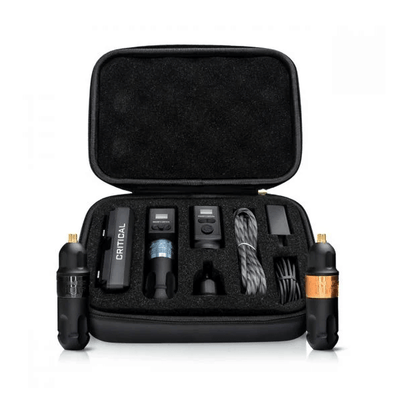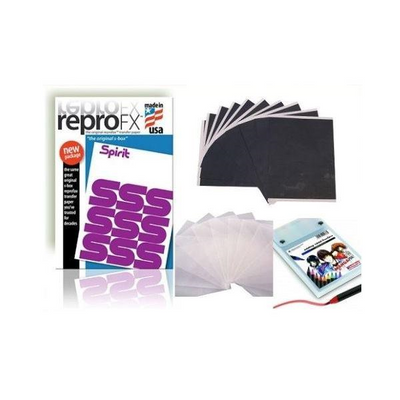In the tattoo business, every ink application involves risks like allergic reactions or unhappy clients who might sue. Having the right insurance is crucial because it protects you from these risks, which could otherwise lead to expensive lawsuits and threaten your business. Getting the right insurance lets you focus on your art without worrying about potential problems, ensuring your shop stays safe and successful.
Now, let's explore the essential insurance policies every tattoo artist and shop owner should consider to safeguard their practice and peace of mind.
What is tattoo business insurance?
Tattoo business insurance is a specialised type designed to protect tattoo artists and their studios from various risks associated with their business. This insurance typically covers liability for injuries that could occur to clients during tattooing and property damage to the studio's equipment and premises. It may also include professional liability coverage, which protects against malpractice or negligence claims in the artist's work.
This insurance is crucial for tattoo business owners as it helps manage financial risks, ensuring they can continue operating even when unexpected incidents occur.

Common types of insurance for a tattoo business
Tattoo businesses face numerous risks, necessitating several types of insurance to protect the business, its employees, and its clients. These are the common types of insurance recommended for a tattoo shop:
General Liability Insurance
This is essential as it protects you against claims of bodily injury or property damage caused to others by your business activities. For instance, if a customer slips and falls in your shop, this insurance can help cover the medical costs and legal fees.
Business Interruption Insurance
If an unforeseen event forces your business to close temporarily, this insurance can help cover lost income and fixed expenses like rent and utility bills, helping you stay afloat financially during the closure.
Commercial Property Insurance
This protects the physical assets of your business, such as your shop space, equipment, and supplies against damage from fires, storms, theft, and other covered disasters.
Business Owners Policy (BOP)
Often a cost-effective choice for small to medium-sized businesses, a BOP bundles general liability and property insurance and may also include business interruption insurance, giving you broad coverage in a single package.
Body Piercer Liability Insurance
Similar to general liability insurance, this specifically covers the risks associated with body piercing services, such as infections or injuries caused to clients.
Professional Liability Insurance
Also known as errors and omissions insurance, this covers you against claims of negligence or harm resulting from mistakes in the professional services you provide. If a tattoo or piercing goes wrong, this insurance can cover legal defense costs and settlements.
Commercial Umbrella Insurance
This provides additional coverage limits above and beyond your other liability policies. If a claim exceeds the limits of your other policies, an umbrella policy can help cover the difference.
Tattoo Artist Liability Insurance
This is specifically designed to cover individual tattoo artists against claims of negligence and can often be tailored to include coverage for guest artists working temporarily at your shop.
Commercial Auto Insurance
If your business owns vehicles used for transporting equipment or employees, this insurance covers liabilities related to operating those vehicles.
Workers’ Compensation Insurance
For tattoo shop owners, this is mandatory in most states if you have employees. It covers medical costs and a portion of lost wages for employees who get injured on the job.
How to choose the right coverage for different risks

Choosing the right insurance coverage for your business involves assessing various risks and ensuring you have appropriate protection for each. Here’s how you can approach selecting the right coverage:
- Understand your risks: Identify specific risks like customer injuries, professional errors, property damage, and legal liabilities.
- Evaluate business assets: Assess the value of your shop, equipment, supplies, and business reputation to determine coverage needs.
- Consider legal requirements: Ensure compliance with mandatory insurance types in your area, such as workers’ compensation.
- Consult industry standards: Refer to trade associations and professional guidelines for recommended coverage.
- Compare policies: Review terms, limits, and exclusions to avoid gaps in coverage.
- Choose appropriate coverage limits: Base limits on potential claim sizes and business exposure.
- Consider bundling policies: A Business Owners Policy (BOP) can provide comprehensive coverage cost-effectively.
- Regularly review and adjust coverage: Update coverage annually or after significant business changes.
- Seek professional advice: Work with insurance brokers or agents specialised in tattoo business insurance.
How much does insurance cost for a tattoo shop?

Insurance costs vary based on coverage types, limits, location, business size, services offered, claims history, and equipment value. High-end tattoo machines and sterilisation equipment increase property insurance costs.
General cost estimates:
- General Liability Insurance: $500–$1,000 annually.
- Professional Liability Insurance: $1,000–$2,000 annually.
- Commercial Property Insurance: Around $1,000 per year for small shops.
- Business Owners Policy (BOP): Starts around $1,300 per year depending on coverages.
- Workers’ Compensation: Varies by employee number and state.
Get quotes from multiple insurers and consult a tattoo studio insurance broker to tailor a package for your budget and risk management needs.
Final thoughts
Securing the right tattoo shop insurance policies is non-negotiable for business longevity and success. Insurance provides a safety net and a foundation for confident operation, protecting both artists and clients.
Investing in comprehensive insurance fosters a safe environment for creativity and client interaction, solidifying your business against potential setbacks.





























































 Studio supplies
Studio supplies












 Power & batteries
Power & batteries







 Aftercare
Aftercare



















 Apprentice
Apprentice


 Piercing & jewellery
Piercing & jewellery







 PMU supplies
PMU supplies



 New arrivals
New arrivals
 Gift vouchers
Gift vouchers
 Shop all
Shop all










































